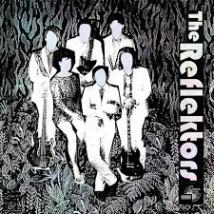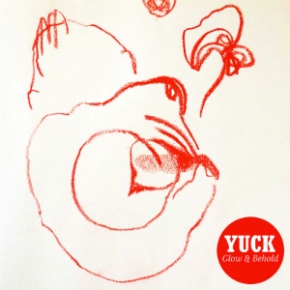Saturated with technology, information, and the never ending influence of the ever connected world it’s easy to ask “how can something pure last?”. It would seem that Kevin Shields, centre of the shoe-gaze collective My Bloody Valentine, holds the answer to this question.
22 years of empty promises, rumours, and hype have led to what might possibly be the most highly anticipated album of all time; My Bloody Valentine’s third record simply titled ‘mbv’. Like its predecessor, the unquestionably unique 1991 release ‘Loveless’, ‘mbv’ was met with critical acclaim. Praised for its confidence, composition, and beauty the album challenged 2 decades of weighty expectation and defied all doubts and fears that were planted in every muso along the way. However, not every critic was filled with enthusiasm when it came to the release of Kevin Shields’ ethereal effort. Chastised for its alleged similarities to ‘Loveless’, ‘mbv’ turned out to be criticised as much as it was praised. These criticisms of similarity have left me questioning whether a direct follow-up to ‘Loveless’, 22 years on, would be such a bad thing.
The modern world’s disposable “click-of-a-button” culture has led the music industry to become impermanent, constantly moving with the times and fashions year upon year, trying to stay ahead of the game and play off what they think “the people” want in order to change the current “voluntary payment” attitude towards music that piracy and online services have created. This approach has led to a lack of honesty and timelessness in modern music as the industry continues to search for cash cows and constant hit-makers that consumers will be happy to pay for instead of giving bands and artist who have something to express a chance.
I feel that Shield’s patient (often misconstrued as “stubborn”) approach towards music completely challenges the throw away culture that is reflected in the music industry. Shields spent 22 years, on and off, trying to transport the sounds in his head onto tape, refusing to release sub-standard music just to meet the constant demand and expectations surrounding a follow up. The album bypasses musical influences that have come and gone over the past 22 years and chooses to develop on a sound centred around personality, discovery, and self-expression. Shield’s story is the perfect example of something pure refusing to give into a shape shifting and ever changing culture and, amazingly, standing the test of time.
Although the expectation and attention that was given to ‘mbv’ rides on the back of the success of an album released before the digital age, My Bloody Valentine’s 3rd effort demonstrates that you don’t need to produce something “relevant” to be heard, you don’t need to compromise your vision for success and you don’t need to be backed by the industry to gain the attention that anyone with an honest creative output deserves. Hopefully, Kevin Shield’s attitude towards music can steer aspiring musicians and artist away from frivolous trends and fashions and give them the hope that a genuine and honest approach towards making music can solidify your place in history.









Recent Comments